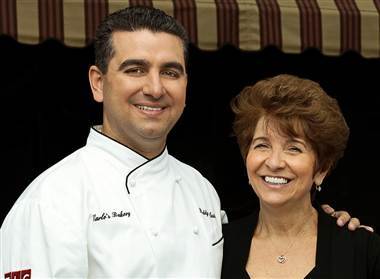Happy 100th Birthday Woody Guthrie!
Woody Guthrie would have been 100 years old today had he not died from Huntington’s Disease at the age of 55.
The prolific folk singer/songwriter was born Woodrow Wilson Guthrie on July 14th, 1912 in Okemah, Okfuskee County, Oklahoma. He was named after the governor of New Jersey (who later went on to become the 28th President).
He spent much of his young adulthood traveling with migrant workers from Oklahoma to California where he learned traditional folk and blues songs. Many of his songs are about his experiences of the Dust Bowl era and the Great Depression, earning him the nickname the “Dust Bowl Troubadour”.
In his biography, Woody Guthrie: A Life, author Joe Klein writes that Guthrie became tired of the radio overplaying Irving Berlin’s “God Bless America.” He thought the lyrics were unrealistic and complacent. From this, he wrote what was to become his best known song, “This Land is My Land” in February 1940; it was subtitled “God Blessed America for Me.”
He was almost as prolific with children and marriages as he was with songs, having had 3 marriages and 8 children. Son Arlo Guthrie followed in his father’s footsteps as a singer/songwriter.
The Beginning of the End
 In the late 1940s, Woody’s behavior started to become increasingly erratic, moody and violent, creating tensions in his personal and professional life. He was increasingly unable to control his muscles had to be hospitalized several times.
In the late 1940s, Woody’s behavior started to become increasingly erratic, moody and violent, creating tensions in his personal and professional life. He was increasingly unable to control his muscles had to be hospitalized several times.
He was mistakenly diagnosed and treated for everything from alcoholism to schizophrenia as his symptoms worsened and his physical condition deteriorated.
In 1952, it was finally determined that he was suffering from Huntington’s disease, a genetic disorder he had inherited from his mother.
Guthrie, was hospitalized at Greystone Park Psychiatric Hospital from 1956 to 1961, at Brooklyn State Hospital until 1966, and finally at Creedmoor Psychiatric Center until his death.
What is Huntington’s Disease?
Huntington’s disease (HD) is a disorder passed down through families in which nerve cells in certain parts of the brain waste away, or degenerate.
Huntington’s disease is caused by a genetic defect on chromosome 4. The defect causes a part of DNA, called a CAG repeat, to occur many more times than it is supposed to. Normally, this section of DNA is repeated 10 to 28 times. But in persons with HD, it is repeated 36 to 120 times.
As the gene is passed down through families, the number of repeats tend to get larger. The larger the number of repeats, the greater your chance of developing symptoms at an earlier age. Therefore, as the disease is passed along in families, symptoms develop at younger and younger ages.
There are two forms of Huntington’s disease: The most common is adult-onset Huntington’s disease. Persons with this form usually develop symptoms in their mid 30s and 40s. An early-onset form of Huntington’s disease accounts for a small number of cases and begins in childhood or adolescence.
If one of your parents has Huntington’s disease, you have a 50% chance of getting the gene for the disease. If you get the gene from your parents, you will develop the disease at some point in your life, and can pass it onto your children. If you do not get the gene from your parents, you cannot pass the gene onto your children.
What are the Symptoms of HD?
Behavior changes may occur before movement problems, and can include:
- Behavioral disturbances
- Hallucinations
- Irritability
- Moodiness
- Restlessness or fidgeting
- Paranoia
- Psychosis
Abnormal and unusual movements include:
- Facial movements, including grimaces
- Head turning to shift eye position
- Quick, sudden, sometimes wild jerking movements of the arms, legs, face, and other body parts
- Slow, uncontrolled movements
- Unsteady gait
Dementia that slowly gets worse, including:
- Disorientation or confusion
- Loss of judgment
- Loss of memory
- Personality changes
- Speech changes
Additional symptoms that may be associated with this disease:
- Anxiety, stress, and tension
- Difficulty swallowing
- Speech impairment
Genetic tests are available to determine whether a person carries the gene for Huntington’s disease.
Can HD be Treated?
There is no cure for Huntington’s disease, and there is no known way to stop the disease from getting worse. The goal of treatment is to slow down the symptoms and help the person function for as long and as comfortably as possible.
Medications vary depending on the symptoms.
- Dopamine blockers may help reduce abnormal behaviors and movements.
- Drugs such as amantadine and tetrabenazine are used to try to control extra movements.
- There has been some evidence to suggest that co-enzyme Q10 may also help slow down the course of the disease, but it is not conclusive.
Depression and suicide are common among persons with Huntington’s disease. It is important for all those who care for a person with Huntington’s disease to monitor for symptoms and treat accordingly.
As the disease progresses, the person will need assistance and supervision, and may eventually need 24-hour care.
For more information, click here to go to the Resounding Health Casebook on the topic.
What is your favorite Woody Guthrie song?
For a wonderful celebration of Woody, go to the Woody Guthrie Centennial site.



























1 Comment